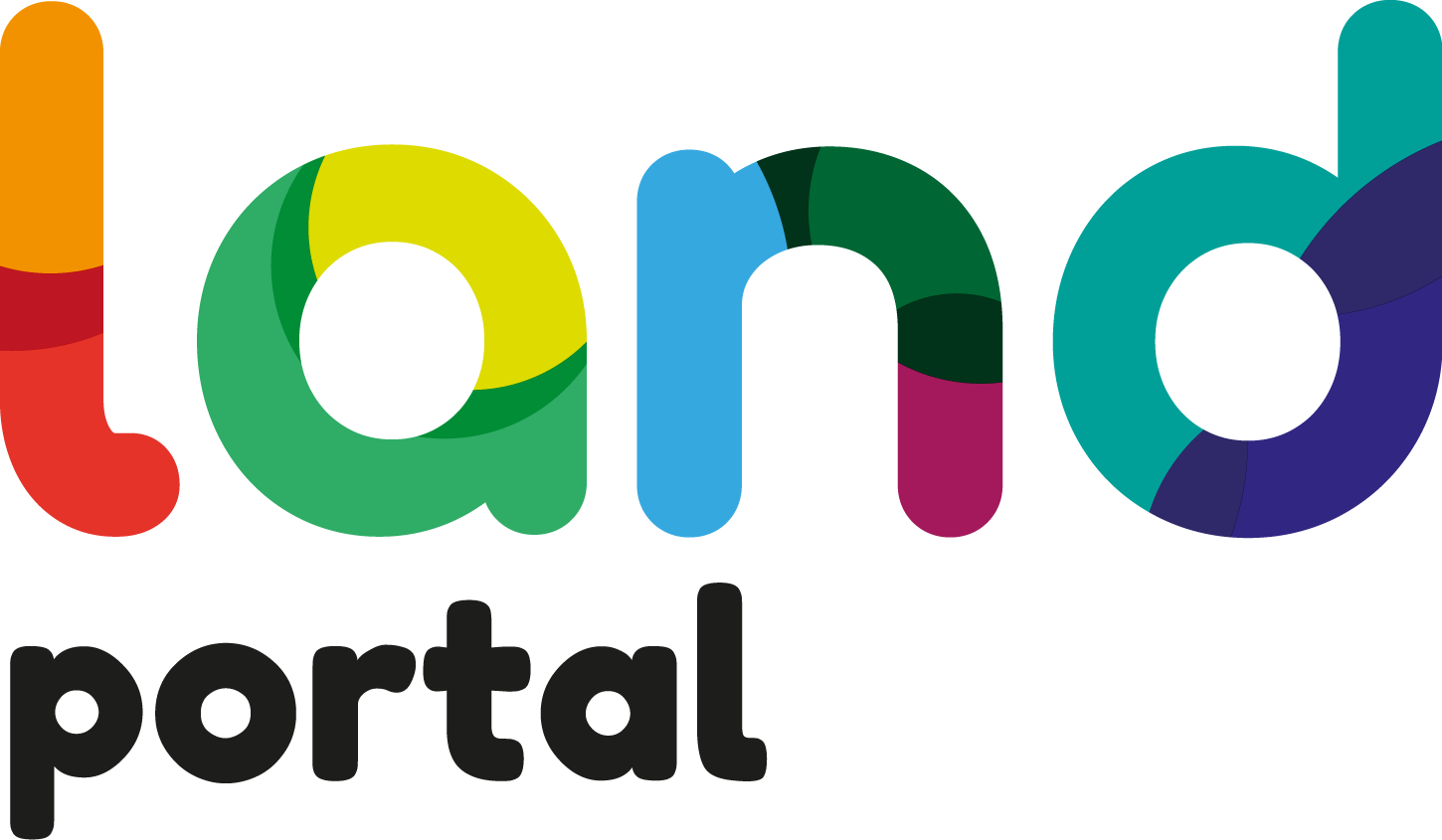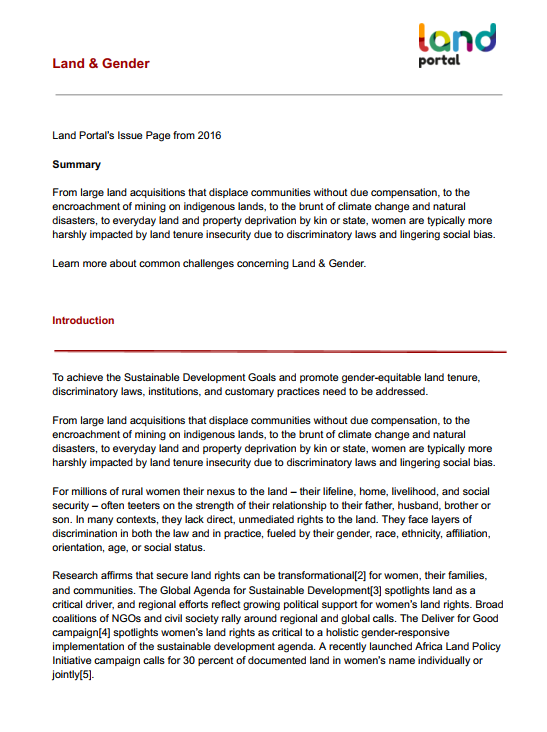Location
The Land Portal is a Foundation registered in the Netherlands in 2014.
The vision of the Portal is to improve land governance to benefit those with the most insecure land rights and the greatest vulnerability to landlessness through information and knowledge sharing.
The goal of the Portal is to become the leading online destination for information, resources, innovations and networking on land issues. Through this it will support more inclusive and informed debate and action on land governance and will increase the adoption and up-scaling of best practices and emerging innovations on land tenure.
Read more about us and join the Land Portal now!
Resources
Displaying 156 - 160 of 177Legacy land issues: Addressing historical disputes in agribusiness investments
This note provides guidance for businesses to identify and address legacy land issues in agricultural investments.
Land & Gender
From large land acquisitions that displace communities without due compensation, to the encroachment of mining on indigenous lands, to the brunt of climate change and natural disasters, to everyday land and property deprivation by kin or state, women are typically more harshly impacted by land tenure insecurity due to discriminatory laws and lingering social bias
Land and Corruption
Corruption in land governance is commonly defined as the abuse of entrusted power for private gain while carrying out the functions of land administration and land management. When land investors target countries with weak governance, the risk of corruption is high. Likewise, corruption is more likely to occur when local elites are able to manipulate their country’s land governance systems for their own benefit
Land and Climate
Climate change can destabilize existing land and resource governance institutions and associated property rights across the spectrum of landscape types. Transformed climatic conditions, manifested in either rapid-onset or slow-onset ways, can change how land and natural resources are accessed and used as geographical shifts in resource productivity, resource scarcity, and therefore land use patterns occur [1].
Land and Investment
Investing in land, and in activities requiring land, occurs around the world. As a broad category, “land and investments” encompasses a wide range of scenarios: investments may be small or large in terms of the amount of money invested and scale of the land acquired. Investments may be undertaken for activities ranging from agriculture or forestry to infrastructure, extractive projects, renewable energy, or even tourism; and may involve a variety of actors, such as local smallholders, national governments, local investors, or foreign corporations, among others.









